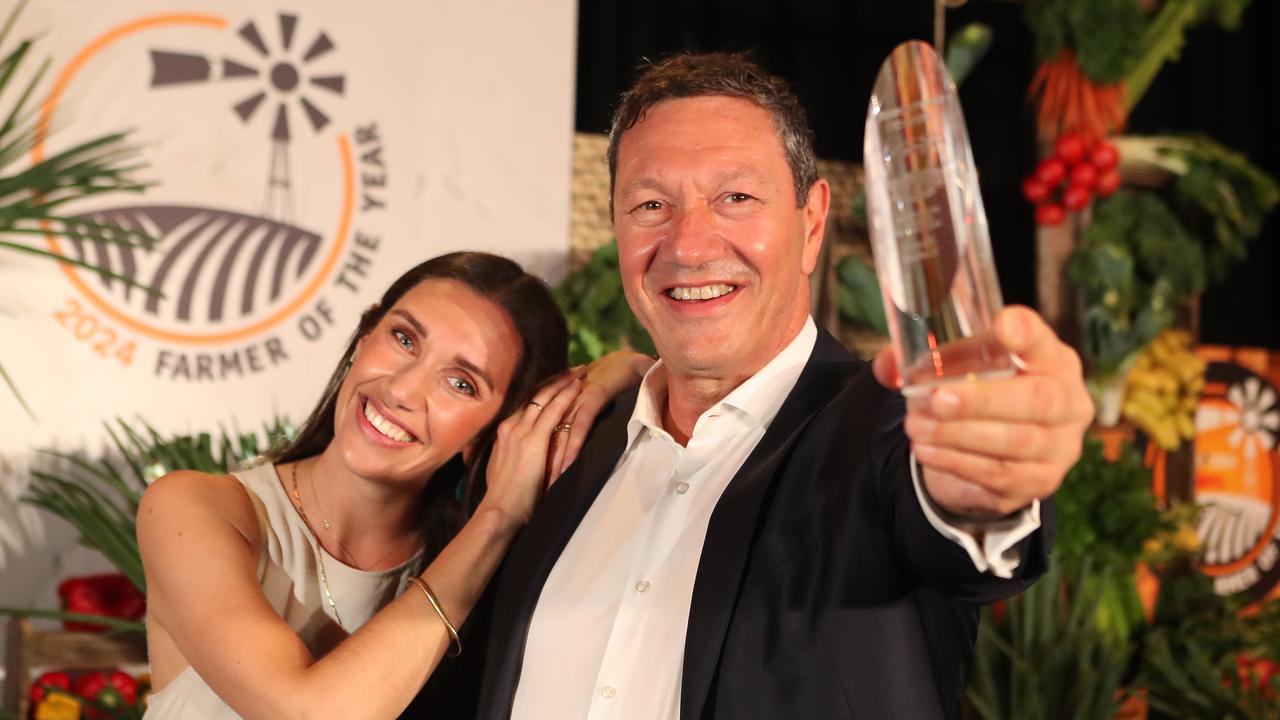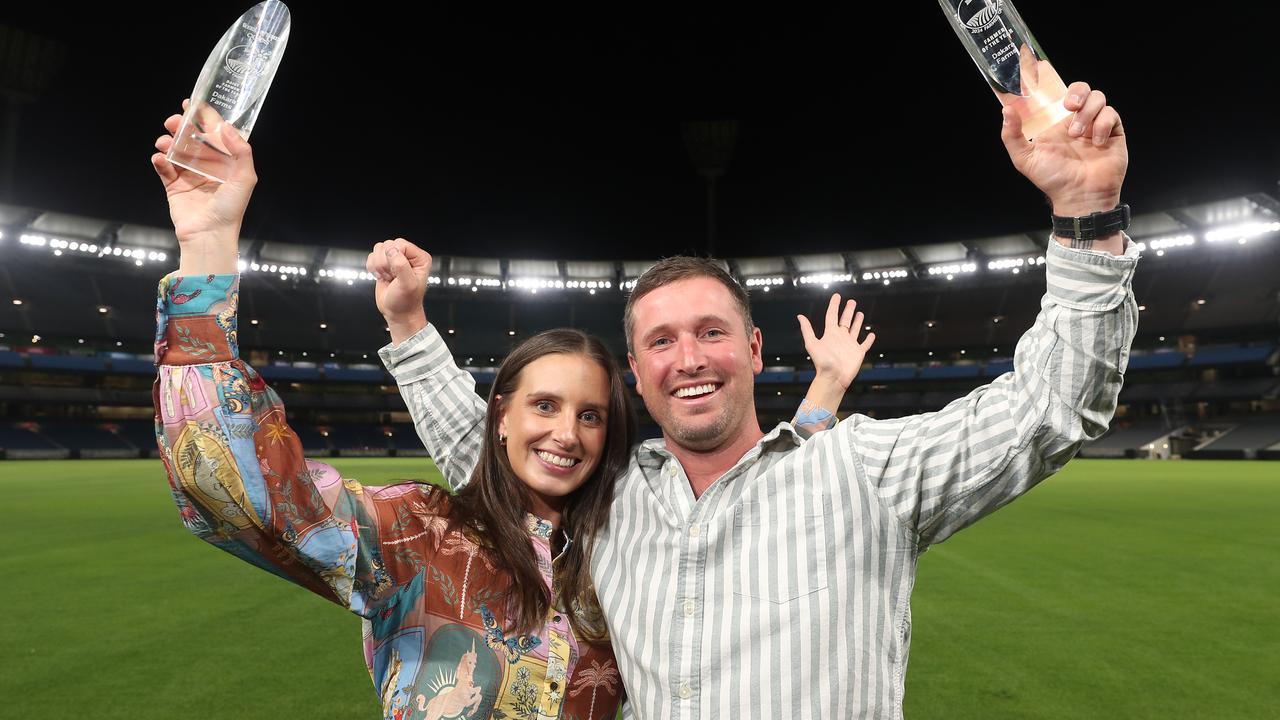Tambo Valley’s Ben and Stacey Murphy find sweet spot during tough times
Drought and bushfires aren’t the only threats for Tambo Valley Honey owners Ben and Stacy Murphy, writes Sarah Hudson.
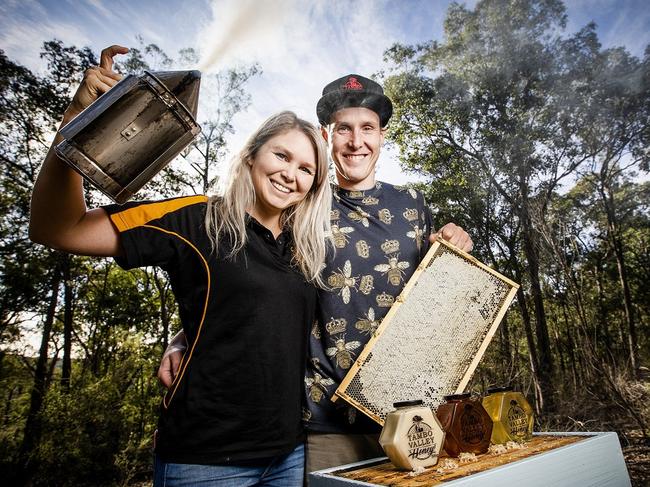
IT HAS been a troubling trifecta for so many: drought, bushfire, pandemic.
For apiarist Ben Murphy there can be a fourth issue potentially added to the list: biosecurity threat.
Ben Murphy and his wife, Stacey, bought Tambo Valley Honey in the middle of the drought in July 2018, but it was East Gippsland’s summer bushfires that had the biggest impact on their business.
The Bruthen business immediately lost bee populations in 220 of their 1200 hives, and subsequently lost access to about half (46) of their State Government land leases in East Gippsland forests.
“That means this spring and summer in particular we’re going to have to find land elsewhere, we’ll have to rely on private properties,” Ben said.
“The fires have been devastating not only to us but to our industry as a whole, especially in NSW.
“With less land available there’s going to be a potential bottleneck of beekeepers in some areas, which creates a higher biosecurity risk.
“I’m not saying it’s going to happen, but there’s a potential if too many are too close together. All we can do is the right thing and hope the person down the road is also doing the right thing.”
Sounds very much like COVID-19 in humans. So has coronavirus also impacted the business?
“I don’t need to go interstate at the moment but I’m sure if we need to we’ll get a permit. NSW beekeepers need to come down for pollination after all.”
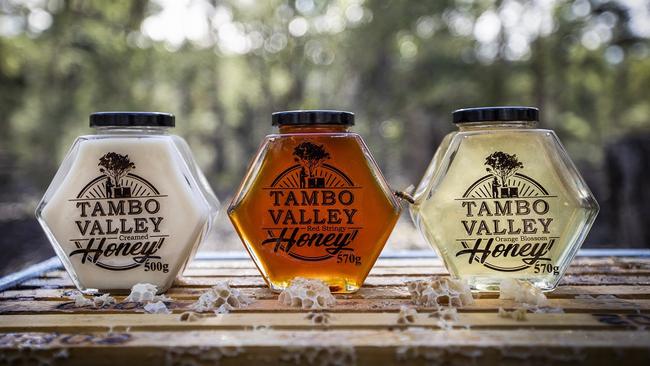
BEN AND STACEY MURPHY
BRUTHEN, VICTORIA
RUN Tambo Valley Honey
LOST 220 of their 1200 hives in summer bushfires
HAVE begun value adding products
PLAN of wax products such as candles and polish
BUZZ WORDS
DESPITE a rocky start to Tambo Valley Honey, Ben has been determined to diversify and expand the business, which yields up to 60 tonnes annually, and is a third-generation company previously called Canes Honey.
Prior to the purchase, Ian Cane sold wholesale, and Ben continues to sell to Beechworth Honey and B-Honey, sold in Coles; and has more recently stopped selling to Capilano.
The 30-year-old said the bee industry could also add a fifth hurdle to the global mix of crises: honey fraud in products that blend local and imported honey.
Fighting back, the Murphys have begun value-adding, with a range of products from 170g glass jars, 500g squeeze bottles, 1.5kg plastic tubs and creamed honey – as well as plans for wax products such as candles and polish.
“Honey fraud has tainted the industry,” said Ben, who is currently building a new packaging plant on his 6ha property at Bruthen.
“Customers now question whether our honey is local, but I’m always encouraging consumers to buy local, whether it’s ours or someone else’s, not just to support local employment, but food security.”
WORKING TOGETHER
BEN and Stacey have joined with three other local producers to form the East Gippsland Collaborative.
The brainchild of Seasalt Sourdough in Swan Reach, the Collaborative includes Forge Creek Free Range and Gippsland Jersey and invites consumers to “sponsor” a box of staple products, delivered to their homes.
Another collaboration includes providing honey to Sailor’s Grave Brewing in Orbost to create braggot, a style of honey beer.
While Ben is diversifying the business, he is also continuing company traditions.
Under the tutelage of Ian Cane, he is learning to breed queens, adding that it’s a critical part of the business structure. Generally queens are bought for $25-$40 and Tambo Valley Honey needs 800 annually.
Rather than buying all queens, Ben buys 200 to diversify the genetics, looking for queen traits that are non-aggressive and a good gatherer to make bees more robust.
Put simply, breeding runs from late November to the end of January when Ben and Ian gather eggs that are 12-24 hours old, place them in pre-made plastic cells, where they hatch up to 15 days later.
Their queens generally lay quality eggs for about two years, laying 2000 eggs a day in spring and summer.
“It’s time consuming, and it depends on where you want to place your time,” he said, adding it will take up to 12 months to repopulate his hives after the summer bushfires.
“But Ian can breed queens that live longer and lay better eggs for longer than most queens you can buy.”
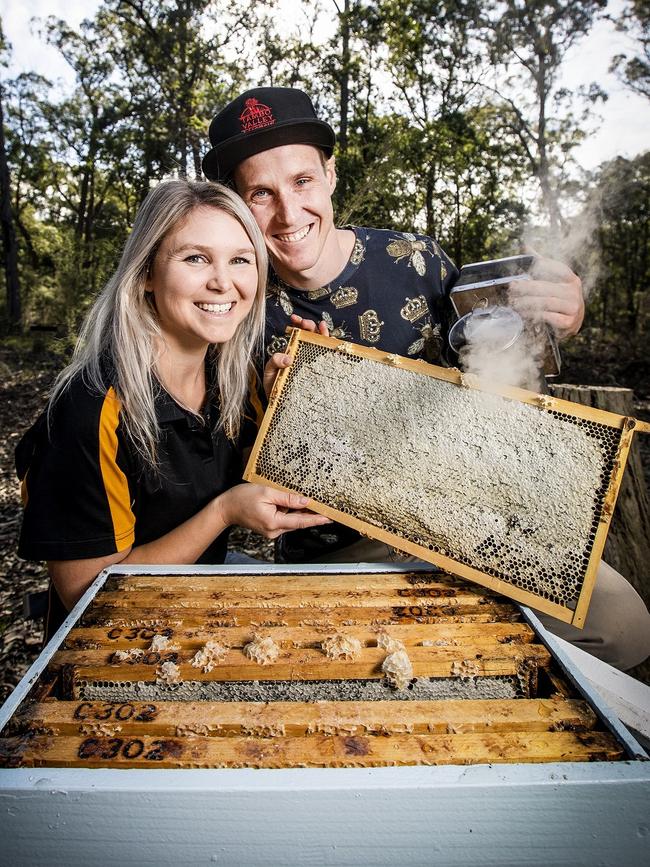
NUT IT OUT
GENERALLY Tambo Valley Honey hives are moved to the Mallee in August for almond pollination, then to canola crops in September and for the remainder of the year are based in East Gippsland.
“People say the forests are re-growing and they are, but they won’t be profitable for beekeeping for seven to 12 years, and the area that is logged is generational.
“If my three-year-old son wants to be a beekeeper, he won’t see any value out of those clear-felled areas in his lifetime.”
Ben said he was fortunate that many private landholders in South Gippsland offered him their land after the bushfires and he now continues to shift the hives throughout the state, constantly inspecting hives for biosecurity threats, especially American foulbrood.
Ben grew up in Bruthen, with his parents starting the Bruthen Bakery, and his mother later running the Omeo Bakery. He became a butcher, initially in his home town, then working in Bairnsdale.
He said in about 2012 he decided to opt for beekeeping .
“So I was a butcher, and a baker, but now I’m the candlestick maker,” he said. “I’m still a rookie, though, I’m constantly learning.”
MORE
BURKES’ WILL OPENS NEW OPPORTUNITIES

